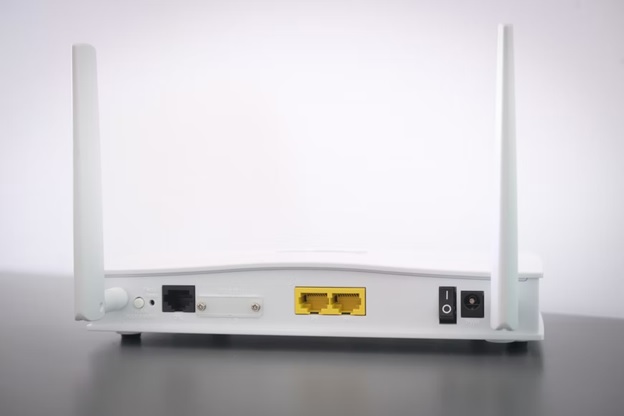6 Advantages and Disadvantages of Using a Router
Today, a router is an essential device with the role of connecting two different networks. While these devices are highly recommended for most setups, you must equally consider their limitations. This article outlines five advantages and disadvantages of using a router.
Advantages of using a router
1. Eases connections
Routers make it easy to share a single network among multiple machines. These devices also allow for connections from different network architectures, a defining attribute that is often clearer when comparing a switch and router. Check out this switch vs router guide to learn more.
2. Supports dynamic routing
Routers use dynamic routing techniques to determine the best network paths, facilitating better internetwork connections. It also creates dynamic broadcast and collision domains, which play a primary role in reducing network traffic.
3. NAT usage
Routers use Network Address Translation (NAT) to map several private IP addresses into a single public IP address. This allows for better internet connections and the flow of information among all devices connected to the network.
4. Integrations
Routers can be integrated with modems to create a wireless access point for several devices within a micro-environment. You can also install a VPN on your router for safer and private internet connections.
5. Packet filtering
Routers support packet filtering, switching, and forwarding using a set of screening rules that have been configured to the device.
6. Offers good backup plan
If one of your external network components fails, routers will use alternative parts to avoid problems with traffic flow. This works great for large companies where constant traffic flow is critical for operations.
Disadvantages of using a router
1. Slower
Routers analyze multiple layers of information from the physical to the network layer, which causes connections to be slow. The same problem can also be experienced when multiple devices are connected to these networking devices, causing a “connection wait.”
2. Expensive
Routers are getting more expensive than other networking devices as new technologies are incorporated into these devices. While the aim is to ensure routers work better, this means digging deeper into your pockets to purchase a good model.
3. Need for configuration
A router has to be properly configured to operate efficiently. Typically, the more complicated the expected usage will be, the more configurations will be required. This calls for professional installations that could further drive up the costs of acquiring a router.
4. Bandwidth shortages
The dynamic routing techniques that routers use to support connections tend to cause networking overheads, which consume a lot of bandwidth. This leads to bandwidth shortages that significantly slow down internet connections among the connected devices.
5. Protocol dependent
Routers are protocol-dependent devices that have to understand the network protocol they are forwarding or fail to complete a connection.
6. Frequent disconnections
A major problem faced by most router users is the frequent disconnections, especially when these devices are used in a flat or apartment. To keep your router on peak performance, you will also have to regularly update its firmware and settings.
Endnote
You need the right equipment for a stable home or business network, and before buying a router, it is critical to know its benefits and limitations.

Review 6 Advantages and Disadvantages of Using a Router. Cancel reply